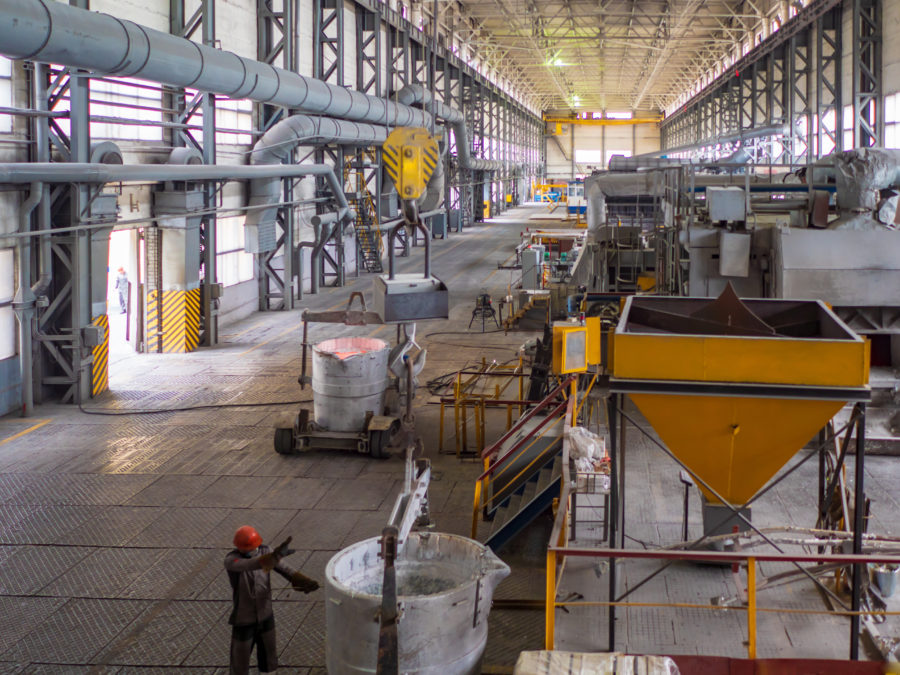Cleanup companies mired in mining sector’s woes
It’s one of the hottest subsectors of the clean-technology field: water remediation for the mining and oil and gas sectors.
But you wouldn’t know it from looking at the financials or stock charts for BioteQ Environmental Technologies Inc. (TSX:BQE), which builds water treatment plants that clean up mine tailings and recover valuable residual minerals.
With shares trading at $0.03, management and major shareholders are now considering taking the Vancouver company private and are rethinking its business model.
Part of the problem for companies like BioteQ is the prolonged downturn in mining and, more recently, a drop in oil prices that has caused companies in those sectors to shelve new water treatment projects.
Ben Sparrow, CEO of Saltworks Technologies Inc., which specializes in desalination of polluted effluent from oil and gas and mining, said there’s been a noticeable drop in demand.
“We were on track to probably sell two commercial units to the oil and gas industry this year,” Sparrow said. “Those are both questionable now.”
Fortunately, the company also serves other industrial sectors and is putting its focus there until things turn around in mining, oil and gas.
Former BioteQ chief technology officer David Kratochvil, who last year took over as CEO when Jonathan Wilkinson resigned, said the downturn in mining has hurt but added the company can’t put all of the blame for its financial woes there.
The bigger problem, he said, is the company’s business model, which has relied too heavily on building turnkey water treatment plants and not enough on pursuing projects that generate recurring revenue.
“We really didn’t get the business model right for a long time, and in the backdrop of all of this, of course, is the cycles of the mining industry,” Kratochvil said.
BioteQ is now planning to focus more on providing engineering service expertise – a move similar to the one Ballard Power Systems (TSX:BLD; Nasdaq:BLDP) made a few years ago. To that end, BioteQ last year laid off its entire sales staff but retained all its engineering and technical staff.
The cuts helped whittle down BioteQ’s net loss from $6.4 million in 2013 to $1.7 million in 2014, but the company is still spending $500,000 a year staying listed on the Toronto Stock Exchange and is now questioning the value of remaining a publicly listed company.
Norman Chow, president of Kemetco Research Inc., agrees the downturn in mining has hit companies involved in mine wastewater remediation and mineral recovery hard, especially those doing business with junior mining companies.
Three years ago, the privately owned chemical research lab partnered with junior miner American Manganese Inc. (TSX-V:AMY) to provide a low-energy process that makes it economically viable to extract manganese from low-grade ore. That project is now on hold.
“They couldn’t raise money,” Chow said. “If your market is juniors, that market has just gotten hammered.”
Bigger companies still have money to spend, however, Chow said. Waste-water remediation used to be just one small part of Kemetco’s business. It’s now a significant component, he said.
“We had a record year last year and a lot of our business was in water treatment,” he said. “There’s a lot of clients out there with money, and they’re not junior mining companies.”
Clean-tech venture capitalist Wal van Lierop, CEO of Chrysalix Energy Venture Capital, said the more successful clean-tech companies – the ones attracting investment from companies like his – are those that identify problems in industry first and then go out and find or develop technology to solve those problems, rather than develop the technology and then try to find markets for it.
“Most of the companies currently in trouble seem to be from the era of technology push, while the success of companies like Axine [Water Technologies] is value-chain-based,” he said.
Axine has developed a low-cost, chemical-free treatment method for eliminating non-
biodegradable organics in a wide range of industrial waste water. It has raised $8 million in venture capital.
David Bromley, owner of David Bromley Engineering Ltd., which recently received $3.2 million in federal funding to help develop a new oil-recovery process, said the key to success in the water remediation business is creating technology that addresses not only environmental issues, but costs as well.
A sharp drop in oil prices has some oil and gas companies rethinking investments in costly new water remediation technology, he said. There is less hesitation when the technology provides a cost benefit.
“As much as there is an aversion to spending capital on risk, on the other side of the equation, there is lots of focus on identifying technologies and procedures that will reduce their costs,” Bromley said.
More News
{{ commodity.name }}
{{ post.title }}
{{ post.date }}




Comments